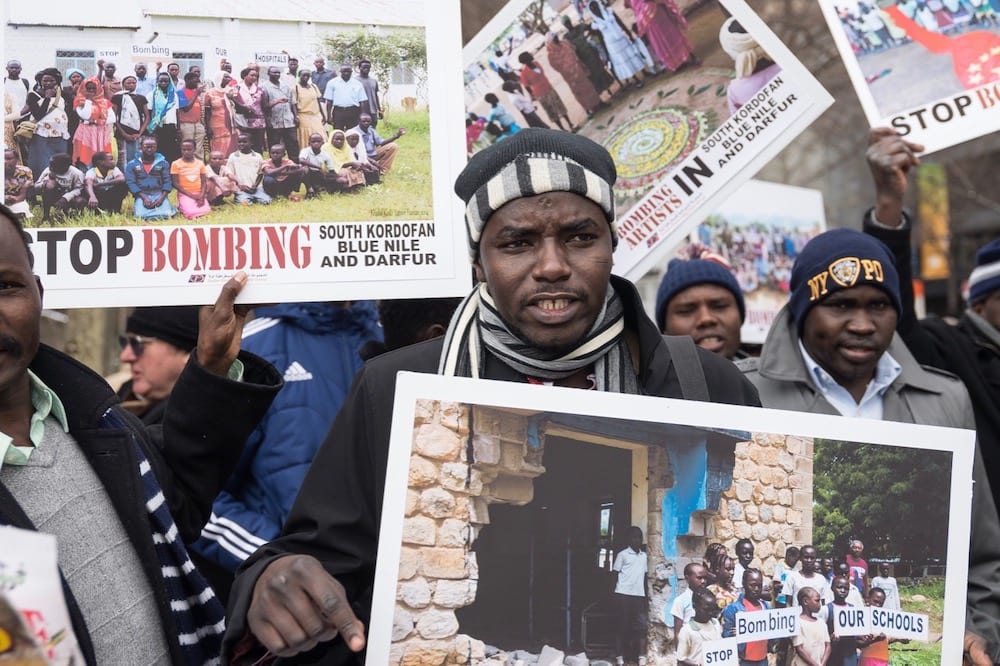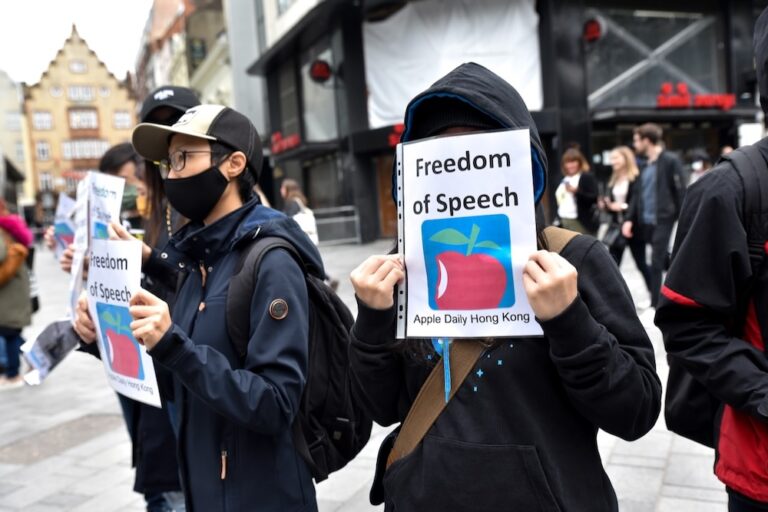"Erasing double standards in access to justice won’t happen overnight, or even in one year or decade. But progress is possible, as long as the international community seeks it." - HRW
This statement was originally published on hrw.org on 17 July 2023.
July 17 is the Day of International Criminal Justice. This year it also marks 25 years since the adoption of the Rome Statute, the founding treaty of the International Criminal Court (ICC). ICC member countries will gather today at the United Nations headquarters in New York City to discuss strengthening political and practical support for justice. That means working to support not only the ICC, but also national courts and other accountability mechanisms across the entire international justice system.
One year ago, together with other human rights groups, Human Rights Watch challenged governments around the world to erase the double standards that limit victims’ access to justice for serious international crimes.
We set out five steps governments can take to strengthen the international justice system and expand the reach of justice, regardless of where these crimes are committed or by whom. Often victims’ access to justice depends on political calculations, including the political will to support justice initiatives with sufficient resources and practical support, giving rise to double standards by leading actors in the treatment of different countries and groups. Erasing these double standards is a central challenge. It is necessary to meet victims’ rights and it also goes right to the legitimacy and quality of an international justice system that holds out the promise of “no one above the law.”
So how have governments done? As expected, there’s been progress and continued challenges.
This year the ICC’s reach expanded, as investigations resumed in Afghanistan, the Philippines, and Venezuela. There has been substantial evolution since the days when the ICC’s docket was solely occupied with Africa. But delivering equal justice requires more than a diverse geographic portfolio. It also requires consistent political support, commitment to quality impartial justice, and financial resources across these accountability efforts. The year highlights just how difficult this task remains.
A landmark Darfur case progressed at the ICC. And yet renewed armed conflict in Sudan after years of inaction by the international community to bring about cooperation on outstanding arrest warrants shows how impunity feeds new abuses. But it’s not all Darfur – ICC arrest warrants remain outstanding across its work because the ICC depends on countries to arrest suspects.
Global attention to accountability in Ukraine has been important. It has led to innovations in support of national proceedings in Ukraine and through other national courts, and yielded two important ICC arrest warrants so far, including one for Russian President Vladimir Putin. However, vocal support for the ICC’s investigation in Ukraine – including pushing back on Russian government attempts at obstruction – contrasts sharply with muted support for the ICC’s work in other situations – Palestine, for example. ICC member countries also failed to fund necessary budget increases for the court, which risks forcing overly selective approaches to cases and situations. Led by the Africa group, ICC countries recognized the risk of selectivity, adopting resolution language at their annual meeting expressing “support for the consistent implementation of the Court’s mandate” across the situations and cases under its jurisdiction.
Erasing double standards means getting more countries to join the currently 123 members of the International Criminal Court. For all the welcome attention to accountability in Ukraine, there’s been little evidence of a real push from ICC member countries to press Ukraine to join the court. This has been a key recommendation for years by Ukrainian civil society organizations.
More equal access to justice also depends on national courts doing their job. And here we have seen big steps forward since last year, in Guinea, where a long-awaited trial on crimes committed during a 2009 massacre is inching forward, in the Central African Republic, with the first verdict before a specialized war crimes court, and with the first war crimes charge in Australia for abuses in Afghanistan. But such efforts by national authorities remain the exception rather than the rule when serious crimes are committed.
National courts can also act where crimes are committed someplace else using “universal jurisdiction.” The number of such cases is on the increase, and governments adopted a new treaty to promote cooperation. Progress in the US, with new legislation, and France, with a key court ruling, could lead to an increase in the use of universal jurisdiction in these countries. The US, of course, has yet to bring meaningful accountability for abuses committed by its own personnel in its “global war on terror,” while the ICC prosecutor has deprioritized alleged crimes by US forces and Afghan government forces in his office’s Afghanistan investigation.
Given the challenges in accessing justice, governments also need to take the long view. Support and protection to human rights defenders and campaigners on the front lines of justice is important, along with ensuring that evidence of international crimes is collected and preserved until criminal accountability may be possible.
It can also mean looking at non-traditional pathways. There’s been an uptick in looking at how the International Court of Justice, with its focus on state responsibility, can play a role; Canada and the Netherlands filed an application to start proceedings over torture in Syria, and the UN General Assembly has requested an advisory opinion on the legal consequences of Israel’s prolonged occupation of the West Bank and Gaza. While these initiatives won’t result in criminal trials, they can be important processes for parallel accountability efforts.
The impacts of history such as the ongoing legacies of slavery and colonialism also need to be addressed. These ongoing legacies fuel underlying power imbalances that are so often a source of inequity in access to justice. This year Human Rights Watch reported on ongoing colonial crimes against humanity committed by the UK in the Chagos Islands. UK authorities should prosecute these crimes and see through Chagossians’ right of return to their homeland. They should also pay full compensation and issue a meaningful apology for losses experienced as a result of the colonial crimes. For a true reparatory process, genuine and meaningful consultations have to be held to ensure the affected communities can be part of this healing and reckoning process. Community-led movements for reparations are giving new hope in efforts to right historical wrongs that continue to impact the realization of human rights.
Erasing double standards in access to justice won’t happen overnight, or even in one year or decade. But progress is possible, as long as the international community seeks it. Together with colleagues across the movement, we will keep calling on governments to take concrete actions to ensure victims’ equal access to justice everywhere, today and every day.



